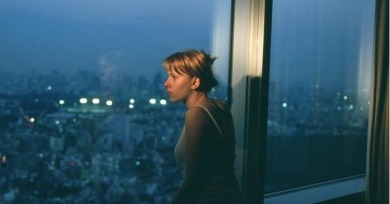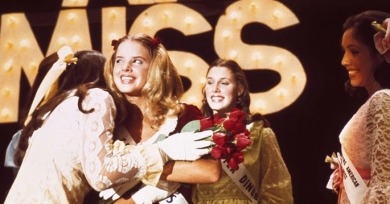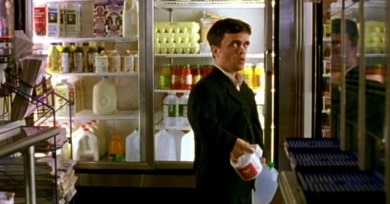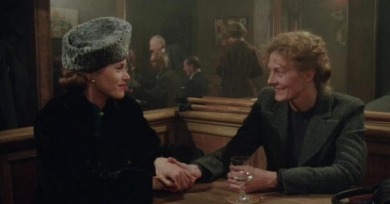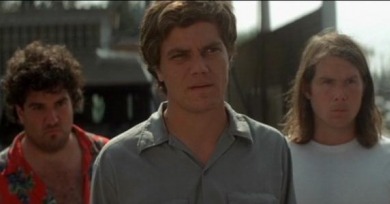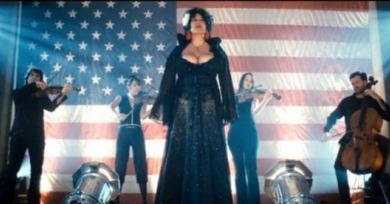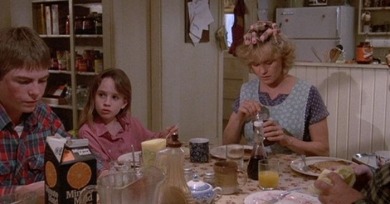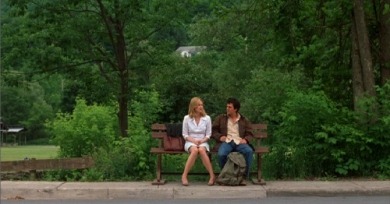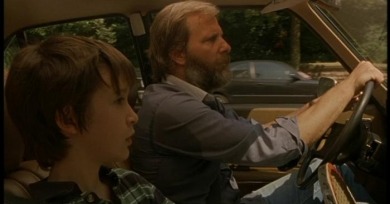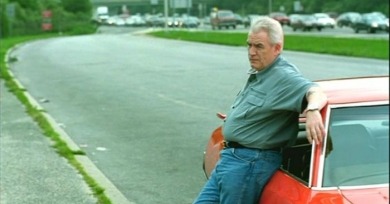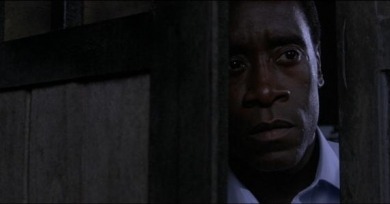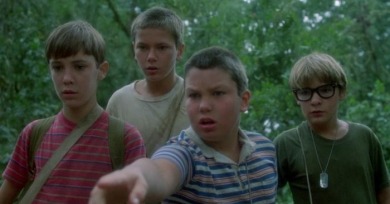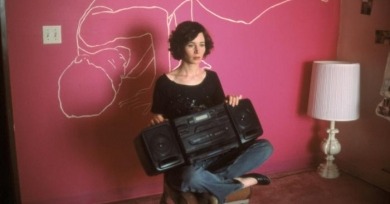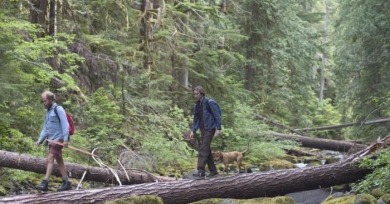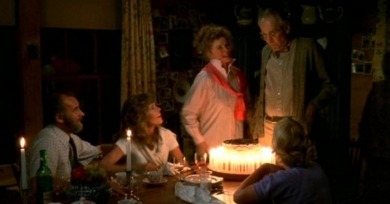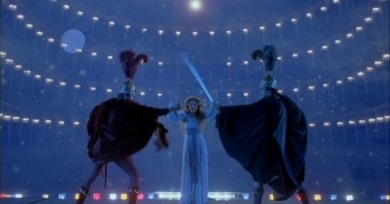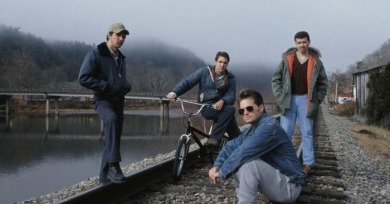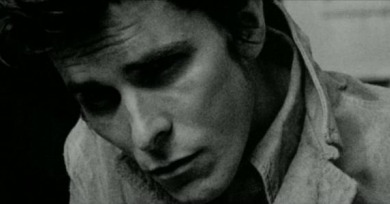Stuck in the Middle
We looked at these “matched-set” essays as exploratory exercises, not excuses for “they don't make ’em like they used to” screeds or, on the other side, reassertions that independence equals truth and Hollywood is inherently artificial.
Just as pageantry has long been a part of American culture, so has the National Spelling Bee, a pervasive test of academic acumen despite the fact that it requires a kind of mechanical rigor that has gone out of favor with modern educational systems in this country.
Any assessment of The Station Agent may be less an objective valuation of its worthiness than an assertion of a certain set of evaluative criteria, a choice between “highbrow” or “elitist” artistic pleasure/edification and “middlebrow” sensitivity/entertainment.
Unlike Julia, Capote focuses more on its characters than the goings on surrounding them. In the former, characters get lost in the maelstrom of history; the actual murders that serve as the catalyst for Capote's book are of secondary importance to their eventual effect on the author.
’night, Mother and Shotgun Stories confront death on intimate scales, and for all their different concerns, both are domestic tragedies preoccupied with housekeeping, or a lack thereof.
Kelly’s logic-defying Southland Tales was a baffling exercise in futuristic, sci-fi apocalyptica that appears to have burst like a loose, baggy monster from the director’s adolescent id.
Both films are structured around quest narratives, and employ this teleology as a mechanism for plumbing regional specificities and eccentricities—Granik and Pearce use their stories as vehicles for ethnography.
One does not have to think hard to line up a lengthy list of small-budget comedies and dramas whose primary narrative thrust revolves around the trials and tribulations of a dysfunctional brood.
Family members, especially in the city, live on top of each other. One major practical consequence of this is that, if you’re just learning how to masturbate, you’re not doing so nearly as privately as you think.
British-born Michael Apted had garnered a solid reputation as a documentary filmmaker with the first installments of his Up series. However, by the time he made Firstborn his career had turned towards the mainstream.
In the twenty years between the releases of The Killing Fields and Hotel Rwanda, remarkably little progress appears to have been made on either front. And we appear to have gone backwards in terms of aesthetics.
Time’s forward momentum might be the most difficult fact we will ever confront, and we come to understand its implications—tentatively at first—at the same instant that we are saddled with a thorny mix of social and biological changes.
It can be difficult to identify, but almost every film in which Los Angeles plays itself features a moment wherein it’s suggested to the audience that the movie is actually set in Hell.
If My Dinner with André offers a torrential downpour of dialogue, Old Joy is like a weekend of scattered showers.
Rigid parents and their scornful offspring, both dealing with the pain of getting older yet lacking empathy for each other’s separate experiences, all of them facing the specter of disease—there’s no way this stuff should feel clean.
Stylistically, it may seem strange that Coppola’s muted depiction of jet-set ennui is the indie pick, while La Luna, a flamboyant feature even by Bertolucci standards, was released by a major studio.
What are we talking about when we talk about “authenticity” in American cinema—or, to whittle down the hundreds of iterations of that slippery term to mere dozens, authenticity in regards to social reality?
In a way Falling from Grace goes even further than I’m Not There in refusing to oversell its director-superstar, a man at the time coming off five straight platinum or multiple-platinum records.
